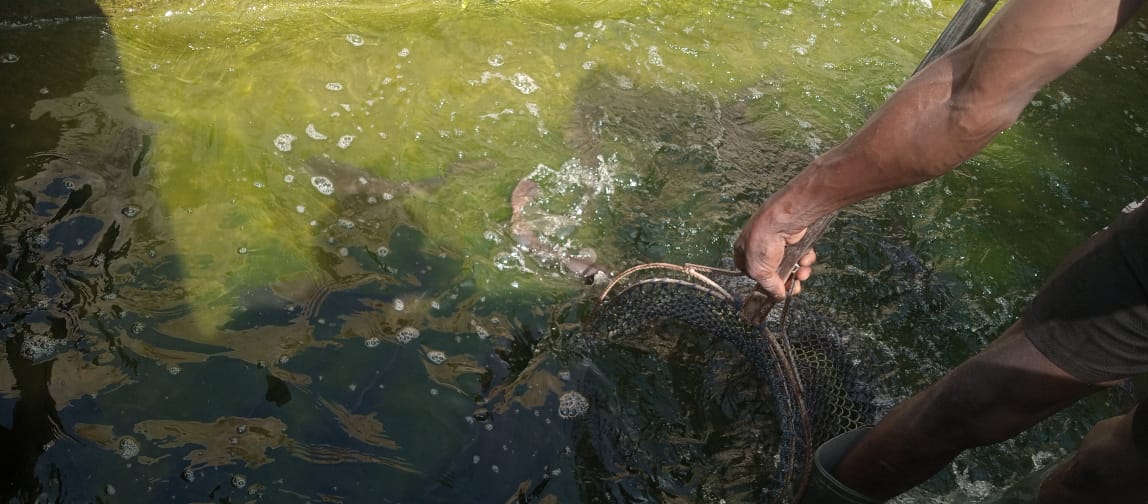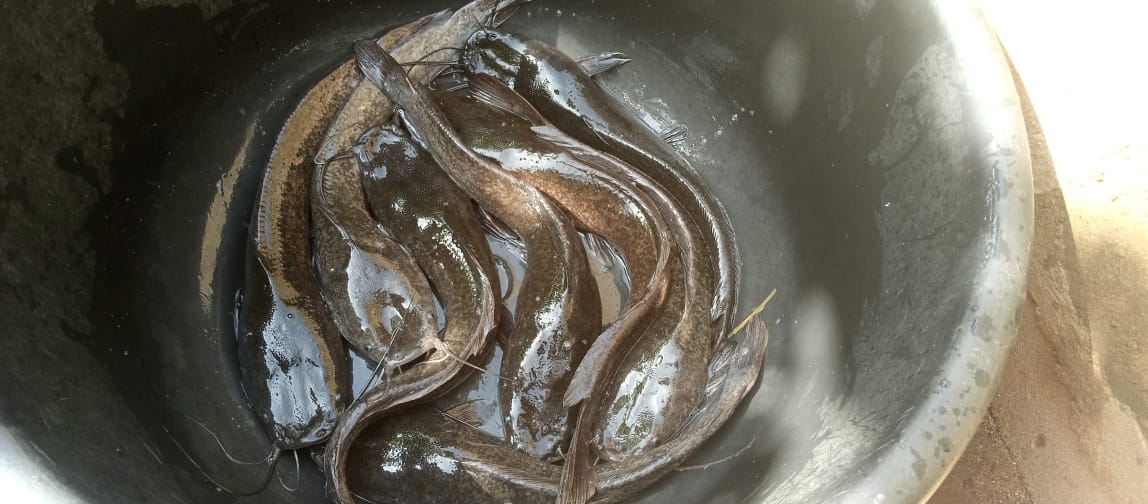R
Richard Ogunsile
Guest

The poultry industry in Nigeria has witnessed significant growth in recent years, driven by increasing demand for poultry products.
However, the sector has been grappling with a significant challenge: the escalating cost of poultry feeds.
In this piece, Naija News highlights the impacts of the rising inflation rate on poultry farming in Nigeria.
The overall inflation rate in Nigeria has been on the rise, affecting the prices of various commodities, including feed ingredients. Corn, soybeans, and wheat, which are essential components of poultry feed, have seen substantial price increases.
Nigeria’s reliance on imported feed ingredients, such as soybeans, has made the poultry industry vulnerable to exchange rate fluctuations. A weaker naira can lead to higher import costs, which are eventually passed on to poultry farmers.
Also, the price of bags of corn and brown maize, which forms part of raw materials used in the production feeds for poultry use, has skyrocketed in the country.
It is worth noting also that as the poultry industry expands, the demand for feed ingredients grows. This increased demand can put pressure on supply and drive up prices.
Impact Of Rising Cost Of Feeds On Poultry Farmers
The rising cost of poultry feeds has significantly impacted poultry farmers in Nigeria. Many farmers have struggled to maintain profitability as the increased feed costs have eroded their margins.
Some have resorted to reducing their flock sizes or using lower-quality feed to cut costs, which can impact their production negatively.
During a recent interview at his farm, Mr Jimoh Ayinla, a seasoned poultry farmer in Igbeti, the headquarters of Olorunsogo Local Government Area, Oyo State, explained the challenges poultry farmers face due to the inflation rate in Nigeria.
Interviewer: It is no longer news that the price of things has gone so high in Nigeria. How has the inflation rate affected your poultry business?
“The challenge we are facing here is that, let me say, months ago now, before this time, the price of our ingredients, I mean the feeds we buy, was not as high as it is now.
Now, a bag of concentrates is ₦20,000 upwards. Some sell it ₦20,000, some ₦20,000. So, the least you could get is ₦20,000,”Mr Jimoh explained.
The Consumers Will Bear The Brunt
Interviewer: How Much Did You Buy The Same Feed In the Previous Year?
“Not even the previous year, months ago now, around ₦16,000, ₦15,000 thereabouts. So you can imagine what kind of increments was made.
Not only that, we are only talking about finished feed; we have some other things like corn, brown maize, and wheat that we use. Everything has gone up.
And you know, the final consumer will feel the brunt. Presently, we are feeling the increments in our ingredients. Surely, it will increase the price of our goods.
How much was the egg? ₦70 now. Now, the least you could get an egg is maybe ₦200. I mean a raw egg, not the cooked one.
The raw egg, the least you can get, is now ₦200,” Mr Jimoh responded.
Interviewer: How much is a crate of eggs now?
“A crate from the farm is now ₦4,500. Depending on the size of the egg.
The least you could get a poulet egg now is ₦4,000. That’s the egg that just started laying. It’s ₦4,000. It’s very small in size. Before now, it is sold at ₦2,000 to ₦2,500.
When you see jumbo, ₦5,000, ₦4,800 thereabouts now. The masses will definitely feel the brunt. It’s not our fault. Everything has gone up,” Mr Jimoh explained.
[Video taken during a tour to Mr Jimoh Ayinla’s farm]



Aside from the feeds, has the price of the vaccines also increased?
“Everything has gone up. Let me tell you, for instance, now. Before the one I bought last, I bought one antibiotic, Aerocare. Three months ago, I bought it for ₦16,000.
The one I bought last was ₦23,000. I bought one vitamin, then ₦14,000. The one I bought recently was ₦24,000. Just one litre. It’s not something that is big. Just one litre.
One litre that won’t take you more than a month. So, that’s it.”
A Plea To The Government
“Everything, inasmuch as the government cannot address the increasing price of petrol, will be affected.
So, we implore our government to help us do it, addressing the inflation rate,” Mr Jimoh prayed to the incumbent government.
Interviewer: With this kind of business, it’s obvious that you cannot reduce the size of feed that you give to your birds. It’s as if it will affect them in a way.
Once you reduce the quantity of feed that you give to your birds, definitely the farmer will feel it, because it will affect their production. Another thing is that it will affect the egg.
The egg might not form if you didn’t use the correct composition for the feed.
Maybe we want to beat costs, and if you alter the input of your composition, you will see that the egg will not form well. As in the shell of the egg, it might not form well.
You might be having something like crackling eggs or things like that, and the farmer will feel it. Nobody will buy that broken egg from you. Another thing is the quantity of your production; if you take your production record, maybe you are expected to see 30 crates; for instance, now, you might see 25 or 20 thereabouts.
So the farmer will feel it. So it is advisable that you use the correct quantity for your feed and not try to cut corners. Once you use the correct quantity of feeds and vaccines, by God’s grace, you will see the results.
One thing about this business is that it’s a business that is garbage in, garbage out. No shortcuts to it. You just do what is needed and leave everything to God. Once you do what is needed, you will see the results.”
Another farmer, Mr Olatunbosun Emmanuel, who is into fish farming, expressed his worries about the current inflation rate and how the price of petrol is causing a setback in his production and gains.
“We expend nothing less than ₦1,500,000 for feeds on just 1,000 fishes to breed them to a medium size. That is with the use of local feeds. We spend much more on foreign feeds to breed the fish to at least 1 kilo,” says Emmanuel in response to related challenges he faces as the inflation rate increases.

[A visit to Emmanuel Olatunbosun’s fish farm

[This is over 4kg of fish from Mr Olatunbosun’s farm. 2kg was sold to a customer at N3,000]
Naija News reports that the rising inflation rate in Nigeria also posed significant challenges to the fish farming industry.
One of the most pressing issues is the increased cost of feed, which constitutes a major portion of production expenses.
As the prices of essential feed ingredients like fishmeal, soybeans, and corn rise, fish farmers find it increasingly difficult to maintain profitability. This has led many to reduce their stock or explore alternative, but often less nutritious, feed options.
Moreover, the inflation rate has also affected the cost of other inputs, such as fuel for transportation, electricity for powering aeration systems, and veterinary supplies.
These additional expenses can further erode the margins of fish farmers, making it challenging to sustain their operations. Additionally, the rising cost of living has made it more difficult for fish farmers to attract and retain skilled labour, which is crucial for successful fish farming practices.
Sharing further his challenges, Emmanuel said, “Aside from the high cost of fishmeals, which has increased the cost of production, I am also faced with power supply issues. We need to be changing the water in the ponds, and because we don’t get a good power supply these days and the cost of fuel is on the high side, I am forced to spend so much on fuel to power my engine in other to pump water into the ponds.”
“Due to these challenges, we are forced to increase the price of fish per kilo.
“Despite the high cost, people still patronize fish from my farm. Like last year, I sell fish at the rate of ₦1,500 to ₦2,000 per kg. But now, I sell for those selling pepper soup at the rate of ₦2,800 and ₦3,000 per kg.”
If the Government Can Give Us Loan, Reduce Cost of Fuel…
“I earnestly wish to get solar power to cut the cost of production. Fueling the generator to pump water and grind my fishmeals all incurs more expenses. I recently tried buying solar panels, batteries and an inverter, but they are so expensive now. And if I dare spend that huge amount in getting the equipment, I will not have any money left to buy feeds, which will cause a setback for the business.
“However, if I can get a loan or grant from the government, my business will strive better. If farmers can get support from the government, it will boost their production,” Emmanuel said.
“Reducing the fuel price will also do us some good,” he added.
Eggs May Be Sold For ₦10,000 Per Crate – Poultry Association Of Nigeria Warns
Meanwhile, just recently, the Poultry Association of Nigeria (PAN) warned that prices of eggs may increase to ₦10,000 per crate.
The Association warned that this would be the case if steps are not taken to address the hike in the cost of fuel in the country.
They attributed the rising cost of the protein to the high cost of transportation and the indiscriminate increase in feed prices by the millers.
The Secretary of PAN, FCT Chapter, Musa Hakeem, said this at a press briefing to commemorate World Egg Day on Saturday in Abuja.
Hakeem stated that the Federal Government, as a matter of urgency, must declare an emergency on Egg production in the country given the serious decline in protein intake, saying Nigerians can not afford to depend on the importation of eggs.
Mitigating the Impact
While some actions can negatively impact production, poultry farmers can consider diversifying their operations to include other livestock or crops to reduce their reliance on poultry and mitigate the impact of rising feed costs.
Implementing strategies to improve feed efficiency, such as using high-quality feed, can help farmers reduce feed costs per production unit.
Local Sourcing – Exploring local sources of feed ingredients can help reduce dependence on imports and potentially lower costs.
Government Support – Government policies and programs to support the poultry industry, such as subsidies or price controls for feed ingredients, can relieve farmers.
The rising cost of poultry feeds in Nigeria presents a significant challenge for poultry farmers. Addressing this issue requires a multifaceted approach involving government support, improved feed efficiency, and diversification strategies.
With a collaborative effort, the poultry industry can navigate these challenges and ensure its continued growth and sustainability.
The post ‘Consumers Will Bear The Brunt’ – Farmers Speak On Price Of Eggs, Fish Amid Soaring Inflation Rate In Nigeria appeared first on Naija News.
